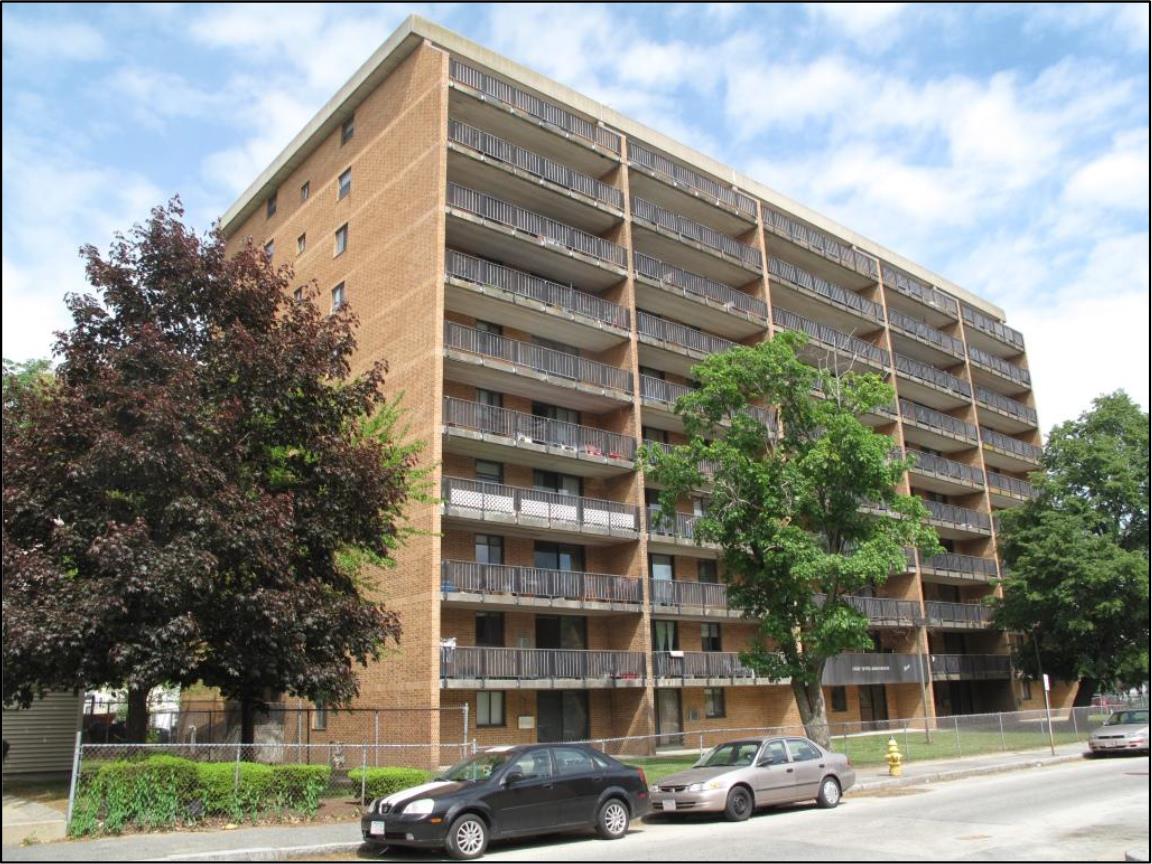March 1st marked an important and somber date in affordable housing preservation – it was the day in which over 1,300 affordable housing units in 15 developments built in the 1970s hit their mortgage expiration date. This “expiring use” problem stems from the financing of two of the biggest rental development programs in that era – the state 13A program and the federal 236 program. These apartments were built by private owners utilizing state and federally-funded mortgage programs with 40 year terms. In return for the publicly-assisted below market rate loans, project owners were required to comply with long-term affordable housing use restrictions. Unless these developments have other subsidies, when the affordable mortgage matures, the owners can begin to convert the affordable housing to market. Virtually all of these mortgages will have matured by March 2020. And in a real estate market that is as super-charged as Greater Boston, it’s easy to understand why owners would be tempted to convert.
There is good news – the state is actively supporting affordable housing preservation. Since 2015, the Department of Housing and Community Development (DHCD) and its partners have preserved the long-term affordability of over 15,000 Massachusetts affordable housing units. In 2017 alone, more than 4,400 units maintained their affordability and the state’s funding decisions, including significant capital investments in affordable housing by the Baker Polito administration, have been key.
It is also due in no small part to the state’s affordable housing preservation law, Chapter 40T. That law established public notification provisions for tenants and state and local officials, purchase rights through a right of offer and right of first refusal for DHCD or its designee to acquire this housing if the owner decides to sell, and modest tenant protections for projects with affordability restrictions that terminate. Since enacted in 2009, the state has helped to preserve almost 30,000 units of affordable rental housing in Massachusetts with the investment of federal, state and local resources also aiding the effort (click here to read our report on the law’s effectiveness).
As an agency, we provide technical assistance and early stage financing to non-profit developers seeking to preserve affordable multifamily housing. Two preserved projects exemplify CEDAC’s preservation success over the last few years. In Lexington, a high cost market, we supported MassHousing, the Town of Lexington and its Housing Authority, and project residents to preserve 16 units of low- and moderate-income cooperative housing. And in Worcester, CEDAC made a $9 million acquisition loan to The Community Builders, Inc. (TCB) to help the non-profit developer preserve the 132 affordable apartments there at the Fruit Sever Apartment complex. The building was preserved through the Chapter 40T purchase process and state financing.
To be clear, there remain real concerns about long-term affordability of the state’s portfolio of federal and state-assisted affordable housing. Thousands of additional affordable units continue to face the risk of market-rate conversion. In particular, 3,200 units built through the state 13A mortgage program are at high risk for loss. A decision by property owners to convert these into market-rate apartments could leave the residents, including many elders, facing much higher rents as tenants in these particular projects are not able to receive federal tenant protection vouchers. State housing officials have responded to this challenge by creating a $100 million fund, combined with federal housing tax credits and bond financing, to offer new financial incentives to the private owners to preserve this housing.
The Massachusetts Senate is expected to vote this week on a $1.7 billion housing bond bill that will fund several critical housing preservation capital programs. In particular, they are expected to approve a $5 million annual increase of the state housing tax credit program with the increase specifically dedicated towards affordable housing preservation.
We also learned that the recently passed federal ‘omnibus’ 2018 budget bill has two important and positive changes to the federal housing tax credit. The federal credit has two distinct “flavors” – the 9% credit, which is largely used to finance new construction, and the 4% credit, which is primarily a housing preservation resource (more about the 4% tax credit here). The new budget law gives a 12.5% boost to the amount of 9% tax credits that each state can allocate. This increase in federal tax credits addresses the loss of equity generated from the sale of these tax credits that followed the passage of federal tax reform in December 2017. On the preservation side, the tax credit developers will be allowed to utilize a new “income averaging” methodology under which some tenants with higher incomes up to 80% of area median income will be considered eligible for tax credit assistance as long as the average of the tenant incomes in the projects is no more than 60% of area median income. This is a very technical change that could have the effect of a 10-15% increase in tax credit equity for most 13A and 236 preservation projects.
The March 1st milestone is a reminder that now is the critical moment to preserve at risk 13A and 236 projects. It continues to be incumbent on us to find and implement innovative solutions like our Commonwealth has done in the past. We can take comfort from the tremendous leadership and commitment of DHCD and its community development partners.
(You can read more about the March 1st milestone and CEDAC’s efforts to preserve affordable housing in our Banker & Tradesman op ed.).







